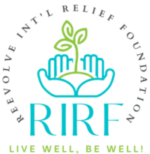This service provides practical, hands-on training and skills development for careers in technical or vocational fields, such as plumbing, welding, cosmetology, or healthcare. Vocational education may be offered at the high school, community college, or trade school level, and can lead to certification, apprenticeships, or degrees in a particular field. The focus of vocational education is on preparing individuals for the workplace, rather than for academic pursuits or general knowledge. The goal of vocational education is to provide individuals with the skills and knowledge they need to succeed in the workforce and to meet the demands of a rapidly changing job market.
We believe this program helps our community in the following ways:
- Closing the skills gap: Vocational education and training can help to close the skills gap and reduce disparities in the workforce by providing access to job-specific training and skills development.
- Increasing employability: Provide individuals with the skills and credentials needed to enter and succeed in the workforce.
- Improving economic outcomes: By increasing access to in-demand jobs and higher wages, vocational education and training can help to improve economic outcomes for minority populations.
- Providing pathways to careers: Vocational education and training can provide individuals with pathways to successful careers in technical and vocational fields, regardless of their academic background.
- Reducing poverty: By improving employability and economic outcomes, vocational education and training can help to reduce poverty and improve quality of life for minority populations.
By providing access to job-specific training and skills development, vocational education and training can help to reduce disparities in the workforce and improve opportunities for minority populations. Our areas of focus are:
Vocational Training

Vocational training is education and training that prepares individuals for specific careers or trades. It focuses on practical and hands-on skills development, and often provides students with the opportunity to learn through real-world experiences, such as internships or on-the-job training.
Vocational training can take place in a variety of settings, including technical schools, community colleges, and trade schools, and can prepare individuals for a wide range of careers, such as automotive technicians, cosmetologists, electricians, healthcare professionals, and many others.
Vocational training can offer several benefits, including:
Job-specific skills development: Vocational training provides individuals with the skills and knowledge needed to succeed in specific careers or trades.
Hands-on experience: Vocational training often provides students with the opportunity to gain hands-on experience through real-world experiences, such as internships or on-the-job training.
Quicker entry into the workforce: Vocational training can often lead to quicker entry into the workforce, as students can complete their education and training in a shorter amount of time compared to traditional college programs.
Increased earning potential: By preparing individuals for in-demand careers, vocational training can help to increase earning potential and improve long-term financial stability.
In summary, vocational training is education and training that prepares individuals for specific careers or trades. It focuses on practical and hands-on skills development and can provide students with the opportunity to learn through real-world experiences. By providing job-specific skills development, hands-on experience, quicker entry into the workforce, and increased earning potential, vocational training can help individuals to achieve their career and financial goals.
Scholarships
ReEvolve will partner with charities to provide financial awards to help pay for a student’s education. This will help by reducing the financial burden of attending college, providing access to higher education, increasing graduation rates, improving career opportunities, encouraging future generations, and offering opportunities for personal and professional growth. By reducing financial barriers and promoting access to higher education, scholarships can help to level the playing field for students and to improve long-term outcomes for the community we serve.


